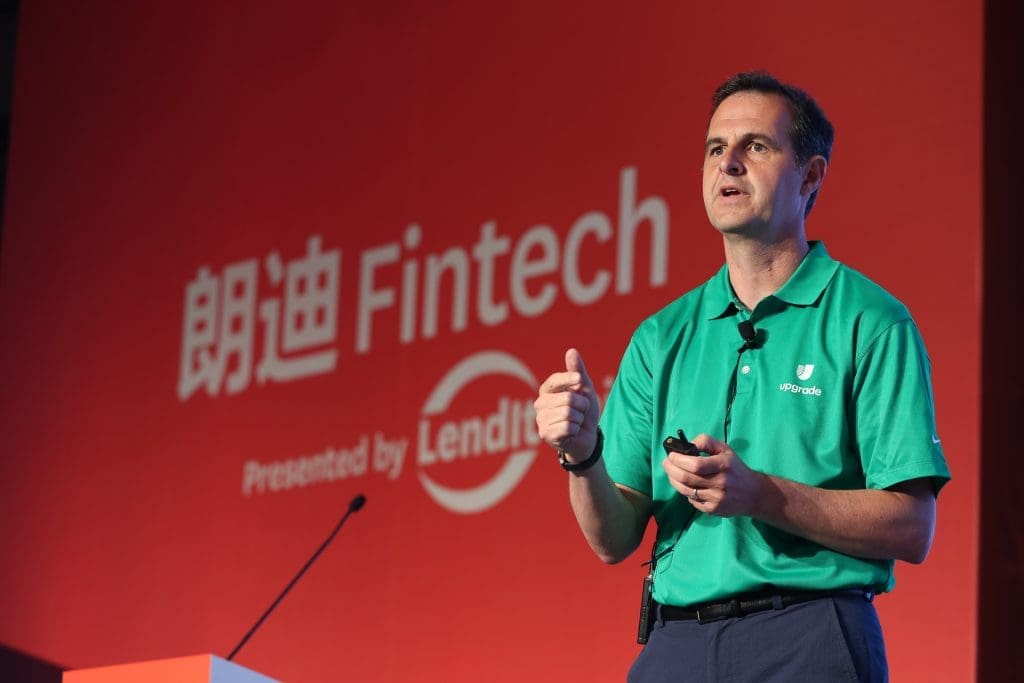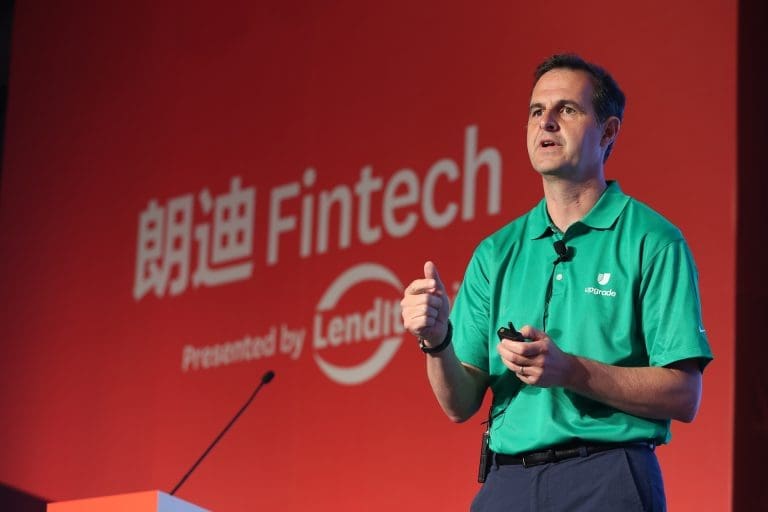
In his first public appearance in over a year Renaud Laplanche, the CEO of Upgrade, gave a presentation this past weekend at Lang Di Fintech, LendIt’s annual Chinese conference, in Shanghai. Titled Online Lending 2.0 he laid out his vision for where he thinks the online lending industry is going next.
He talked about how one of the big innovations in Online Lending 1.0 was the introduction of more data into the underwriting process. Ten years ago, which marked the beginning of Online Lending 1.0, this new data allowed more accurate underwriting of consumers. But in Online Lending 2.0 this has expanded dramatically with not just more data but new and better tools available to analyze this data.
The two key data points that are being added in Online Lending 2.0 are location data and free cash flow analysis. We need to adjust underwriting to take into account location because a consumer in New York City has a much higher than average cost of living while a consumer in Greenville, SC has a much lower than average cost of living for example. This is why Debt-to-Income (DTI) is less important than free cash flow today.
Having said all that Renaud also shared that Online Lending 2.0 is not just about data. It is about better processes. We need better liquidity, transparency and alignment of interests with investors. This means being fully transparent on credit policy and data verification. What Upgrade is doing is creating an immutable record of their loan data by storing it on the blockchain – this means better data integrity and transparency for investors. He also talked about the need for better liquidity options for investors, this is part of Online Lending 2.0.
Renaud also shared that cloud computing is making a big difference in Online Lending 2.0. Whereas ten years ago you needed a data center to house all the company’s data, today everything is stored in the cloud. This is much cheaper and more efficient. He also talked about the changing demographics in the US and how we have lost one million homeowners in the past decade and added 6.8 million renters. As a result of this the average DTI of American consumers has dropped from 13% to 10%. But this is a misleading figure because of the huge increase in the number of renters. This is one of the reasons why free cash flow analysis is so important in underwriting today.
Renaud ended with a striking photo of a vintage car alongside a Bugatti with the point that technology has come a long way and what seemed impossible a few years ago will be commonplace in the future.
After his presentation I conducted a Q&A with Renaud as well as Soul Htite, Dianrong co-founder and CEO. Soul was also a co-founder of Lending Club and has known Renaud for over a decade. They both gave their perspectives on the differences between fintech innovation in the west and China – pointing out that China effectively leapfrogged the credit card and went direct from cash to mobile payments.
When I asked about trends over the near term Renaud had an interesting thing to say. He said that point of sale is a huge opportunity and the merging of digital payments with a credit opportunity will be a big growth area for fintech in the near future. We also talked about their keys to their success and both agreed that it came down to hiring great people and building a team that works well together towards a common goal.
Soul shared some lessons he has learned in creating a successful business as a westerner in China. He quickly pointed out that he could not have done this without a local co-founder (Kevin Guo, a former prominent Shanghai lawyer) and a strong local team. That and you must not take no for an answer.
Finally, we talked about regulation. I pointed out that there seemed to be some friction between regulators seeking consumer protection and entrepreneurs pushing innovation. Renaud disagreed. He said that entrepreneurs should be building businesses with consumer protection in mind and if you do that you will likely receive a positive reception from regulators.


